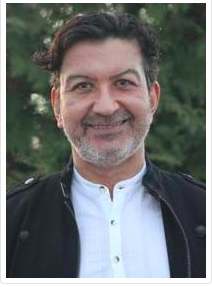How About a Little Equity?- impressions on a reading of Alberto Rodriguez.
Which is the REAL Alberto Rodriguez? (choose A or B)
That isn't really fair, they are BOTH the real Alberto Rodriguez. One is a Spanish film director and one is a professor of education and science education at Purdue University, whose self-professed goal is one of commitment to making education more accessible, equitable and successful for all students. The education Alberto Rodriguez ( I would call him A-Rod but, alas, that moniker has been taken and I don't really know if he would even appreciate the comparrison) gave a lecture on cross-cultural education at high school level. (https://youtu.be/TmSJk_OrKbA) as part of Purdue University College of Education Research Colloquium.
During online seminar last week we were discussing the NGSS and in what ways the Framework for K-12 differentiates from the previous national science standards. Someone said or quoted someone else as follows: "The standards are created by the people who are powerful enough to get invited to the table. Teaching is where equity comes" What this means is that the standards are created by a limited section of voices and they are never going to be the "thing" that creates equity of voice, of access, or opportunity in the classroom. That can only come from the teacher. According to our real Alberto,
Tara mentioned how much she respects A. Rodriguez as an academic and lecturer and as a person. After being introduce to his ideas about multi-cultural education and his thoughtful and though-provoking review of the NGSS I know I am just getting started hearing what this education innovator has to say.
(By the way, our guy is pictured first at the top of this post)
That isn't really fair, they are BOTH the real Alberto Rodriguez. One is a Spanish film director and one is a professor of education and science education at Purdue University, whose self-professed goal is one of commitment to making education more accessible, equitable and successful for all students. The education Alberto Rodriguez ( I would call him A-Rod but, alas, that moniker has been taken and I don't really know if he would even appreciate the comparrison) gave a lecture on cross-cultural education at high school level. (https://youtu.be/TmSJk_OrKbA) as part of Purdue University College of Education Research Colloquium.
During online seminar last week we were discussing the NGSS and in what ways the Framework for K-12 differentiates from the previous national science standards. Someone said or quoted someone else as follows: "The standards are created by the people who are powerful enough to get invited to the table. Teaching is where equity comes" What this means is that the standards are created by a limited section of voices and they are never going to be the "thing" that creates equity of voice, of access, or opportunity in the classroom. That can only come from the teacher. According to our real Alberto,
As teachers become more aware of their own
cultural, academic and socioeconomic identities, they should become more sensitive and
responsive to the diverse needs of their students. This is essential to take into account especially
when we consider that the overwhelming majority of elementary school teachers in the US (85%)
are Anglo, middle-class, women who are working with an increasing culturally diverse population.
This process of "becoming more aware of our identities as teachers is what the first part of our STEMS2 course has been focussed on. Our summer Learning Journeys along with the assignments and discussions of the early fall have turned the focus inward so that we can be hyper aware of what we bring to the practice of teaching. This tuning-in has already manifested in positive interactions with students and more empathy and caring for my fellow teachers both at school and in the program.Tara mentioned how much she respects A. Rodriguez as an academic and lecturer and as a person. After being introduce to his ideas about multi-cultural education and his thoughtful and though-provoking review of the NGSS I know I am just getting started hearing what this education innovator has to say.
(By the way, our guy is pictured first at the top of this post)


Comments
Post a Comment